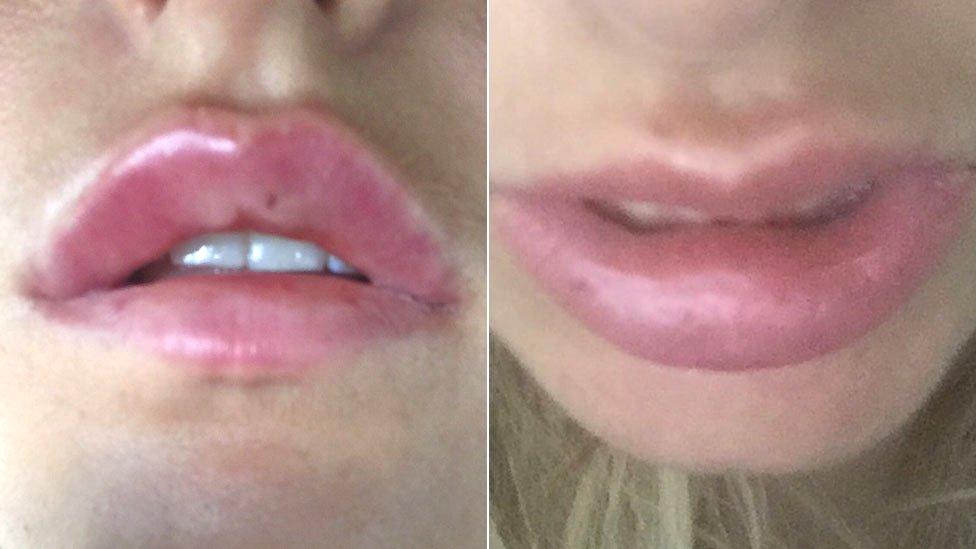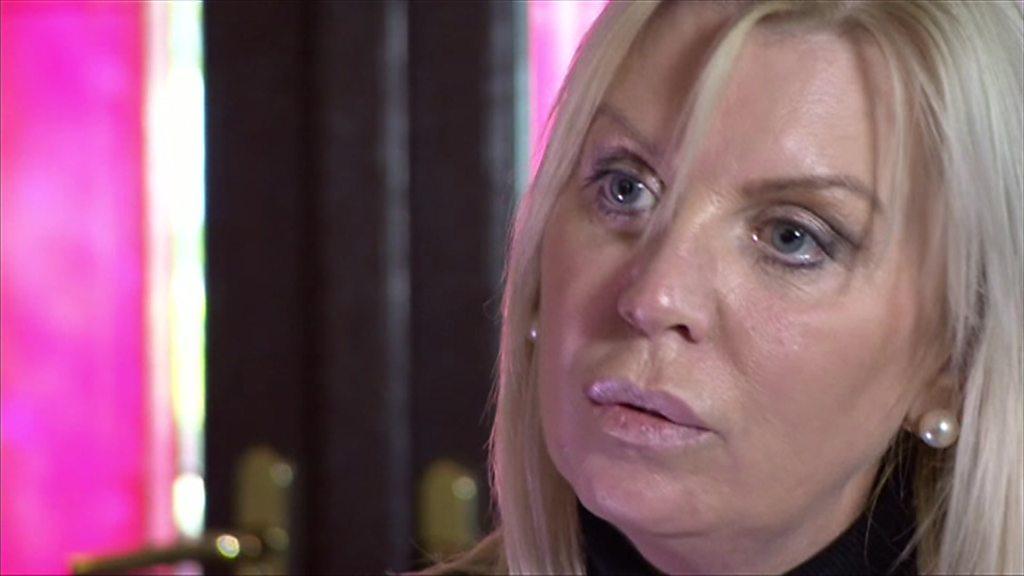Cosmetic surgery procedures 'fell by 40% in 2016'
- Published

Britons are now more likely to opt for non-surgical procedures, such as facial injections, surgeons say
The number of people having cosmetic surgery in the UK in 2016 dropped by 40% compared with 2015, figures show.
The British Association of Aesthetic Plastic Surgeons said 30,750 procedures had been done - down from 51,140.
Surgeon Rajiv Grover, who compiled the report, said more men and women were choosing cheaper, non-surgical procedures, such as chemical peels.
The biggest fall was in the number of brow lifts, while breast augmentation remained the most popular surgery.
Mr Grover, a consultant plastic surgeon and former BAAPS president, said: "In a climate of global fragility, the public are less likely to spend on significant alterations and become more fiscally conservative."
How safe is the cosmetic surgery boom?
The association said that anecdotally, non-surgical treatment such as facial injections have continued to grow in popularity.
But Mr Grover added: "It's worth, however, remembering that the non-surgical sector is rife with lax regulation, maverick behaviour and unethical promotional gimmicks, so the public must remain vigilant.
"Non-surgical does not, and never has, meant non-medical."
The surgery audit showed that in 2016:
On women, 28,341 procedures were carried out, a fall of 39.1% from 2015
On men, there were 2,409, a fall of 47.8%
The top choice for women was breast augmentation with 7,732 procedures - down 20% from 2015
The top operation for men was rhinoplasty (nose reshaping), accounting for 529 procedures in total - down 35% from 2015
The biggest fall - 71% - was in the number of brow lifts
The number of men having abdominoplasty - tummy tuck - was up 47% with 172 procedures carried out
Current BAAPS president and consultant plastic surgeon Simon Withey said the audit showed patients were "getting the message" that surgery was not a "quick fix".
"If it means people are taking their time to be truly sure a procedure is the right investment for them, then this can only be a good thing," he added.
- Published29 November 2016

- Published4 October 2016

- Published4 October 2016
